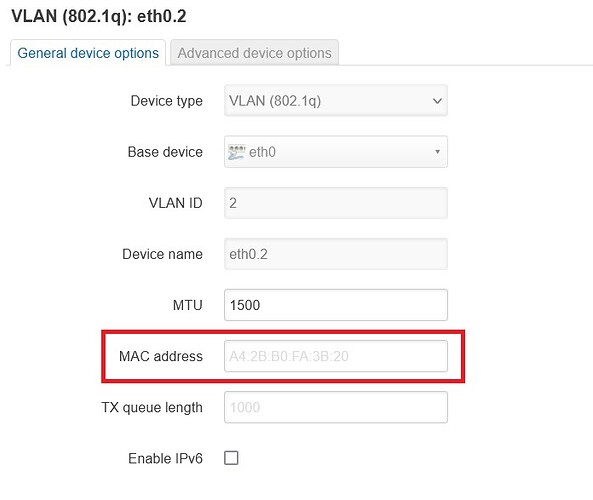More info on pings.
Once a website is inaccessible, it is for the whole network.
Below is a collection of pings for various websites and their outcome from my router.
Please note, the ones that work are solid. If it pings once, it can ping continuously indefinitely without issue.
The ones that do not work will never work until the router is rebooted, where they will work for a short time.
oot@OpenWrt:~# ping stackoverflow.com
PING stackoverflow.com (151.101.65.69): 56 data bytes
^C
--- stackoverflow.com ping statistics ---
31 packets transmitted, 0 packets received, 100% packet loss
root@OpenWrt:~# ping facebook.com
PING facebook.com (2a03:2880:f127:83:face:b00c:0:25de): 56 data bytes
64 bytes from 2a03:2880:f127:83:face:b00c:0:25de: seq=0 ttl=53 time=25.935 ms
64 bytes from 2a03:2880:f127:83:face:b00c:0:25de: seq=1 ttl=53 time=22.664 ms
^C
--- facebook.com ping statistics ---
2 packets transmitted, 2 packets received, 0% packet loss
round-trip min/avg/max = 22.664/24.299/25.935 ms
root@OpenWrt:~# ping reddit.com
PING reddit.com (151.101.193.140): 56 data bytes
^C
--- reddit.com ping statistics ---
15 packets transmitted, 0 packets received, 100% packet loss
root@OpenWrt:~# ping apple.com
PING apple.com (17.253.144.10): 56 data bytes
64 bytes from 17.253.144.10: seq=0 ttl=56 time=31.686 ms
64 bytes from 17.253.144.10: seq=1 ttl=56 time=30.365 ms
64 bytes from 17.253.144.10: seq=2 ttl=56 time=29.908 ms
^C
--- apple.com ping statistics ---
3 packets transmitted, 3 packets received, 0% packet loss
round-trip min/avg/max = 29.908/30.653/31.686 ms
root@OpenWrt:~# ping coinbase.com
PING coinbase.com (2606:4700::6812:60a): 56 data bytes
64 bytes from 2606:4700::6812:60a: seq=0 ttl=54 time=25.977 ms
64 bytes from 2606:4700::6812:60a: seq=1 ttl=54 time=24.025 ms
^C
--- coinbase.com ping statistics ---
2 packets transmitted, 2 packets received, 0% packet loss
round-trip min/avg/max = 24.025/25.001/25.977 ms
root@OpenWrt:~# ping fox.com
PING fox.com (23.11.208.173): 56 data bytes
64 bytes from 23.11.208.173: seq=0 ttl=53 time=36.401 ms
64 bytes from 23.11.208.173: seq=1 ttl=53 time=36.840 ms
^C
--- fox.com ping statistics ---
2 packets transmitted, 2 packets received, 0% packet loss
round-trip min/avg/max = 36.401/36.620/36.840 ms
root@OpenWrt:~# ping stackexchange.com
PING stackexchange.com (151.101.193.69): 56 data bytes
^C
--- stackexchange.com ping statistics ---
18 packets transmitted, 0 packets received, 100% packet loss
root@OpenWrt:~# ping youtube.com
PING youtube.com (2607:f8b0:4009:818::200e): 56 data bytes
64 bytes from 2607:f8b0:4009:818::200e: seq=0 ttl=116 time=22.857 ms
64 bytes from 2607:f8b0:4009:818::200e: seq=1 ttl=116 time=23.410 ms
^C
--- youtube.com ping statistics ---
2 packets transmitted, 2 packets received, 0% packet loss
round-trip min/avg/max = 22.857/23.133/23.410 ms
root@OpenWrt:~# ping funimation.com
PING funimation.com (45.60.109.224): 56 data bytes
^C
--- funimation.com ping statistics ---
20 packets transmitted, 0 packets received, 100% packet loss
root@OpenWrt:~#
In summary:
stackoverflow.com - Nope
facebook.com - Good
Reddit.com - Nope
Apple.com - Good
coinbae.com - Good
Fox.com - Good
Stackexchange.com - Nope
Youtube.com - Good
Funimation.com - Nope
A Traceroute of a broken website returns no results for the first 3 hops. After that, some pop up sparingly 4-7. Then hop 8 and onward is all broken again.
The only clue I've gathered here is
Nslookup only returns both iPV4 and IPV6 for those domains that worked.
Nslookup only returns IP4V on the domains that did not work.
But, as you can see pings on some of those that did work, some of them are working with ipv4 addresses.
Example:
root@OpenWrt:~# nslookup youtube.com
Server: 127.0.0.1
Address: 127.0.0.1#53
Non-authoritative answer:
Name: youtube.com
Address: 142.250.191.142
Name: youtube.com
Address: 2607:f8b0:4009:808::200e
root@OpenWrt:~# nslookup funimation.com
Server: 127.0.0.1
Address: 127.0.0.1#53
Non-authoritative answer:
Name: funimation.com
Address: 45.60.109.224
Name: funimation.com
Address: 45.60.73.224
Does anyone have an idea of what this may mean?
![]()
